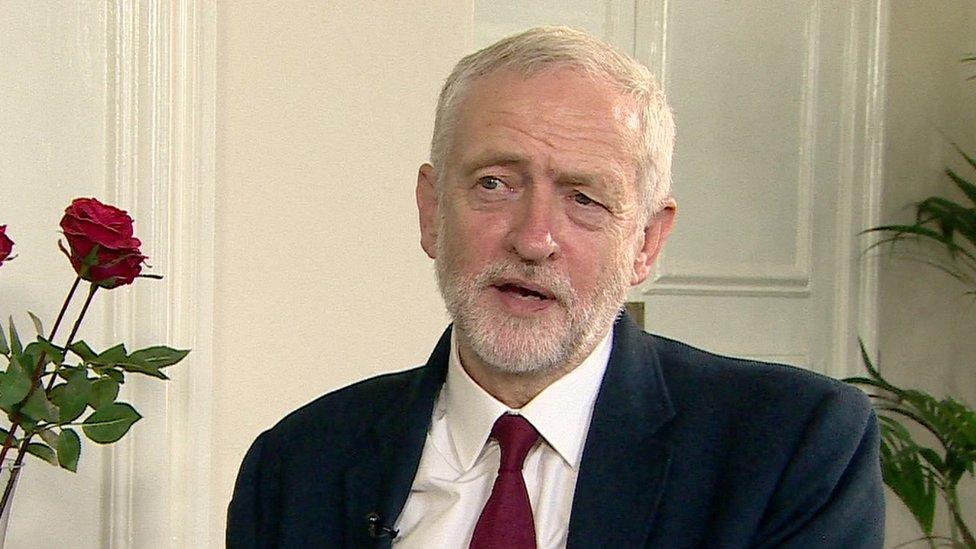Labour leadership: Corbyn and Smith await election result
- Published
A look back at the 16 months since Ed Miliband stepped down as Labour leader
The outcome of the Labour leadership election between Jeremy Corbyn and Owen Smith will be announced shortly.
The winner will be unveiled in Liverpool where the party is preparing to hold its annual conference.
Mr Smith's challenge to the current Labour leader, who was only elected a year ago, follows months of tension between Mr Corbyn and many Labour MPs.
The Labour leader has offered to "wipe the slate clean" and reach out to his opponents if he is re-elected.
There has been speculation that a number of Labour MPs who resigned from Mr Corbyn's shadow cabinet in June over his leadership could return in an attempt to heal the sharp divisions over the party's future direction.
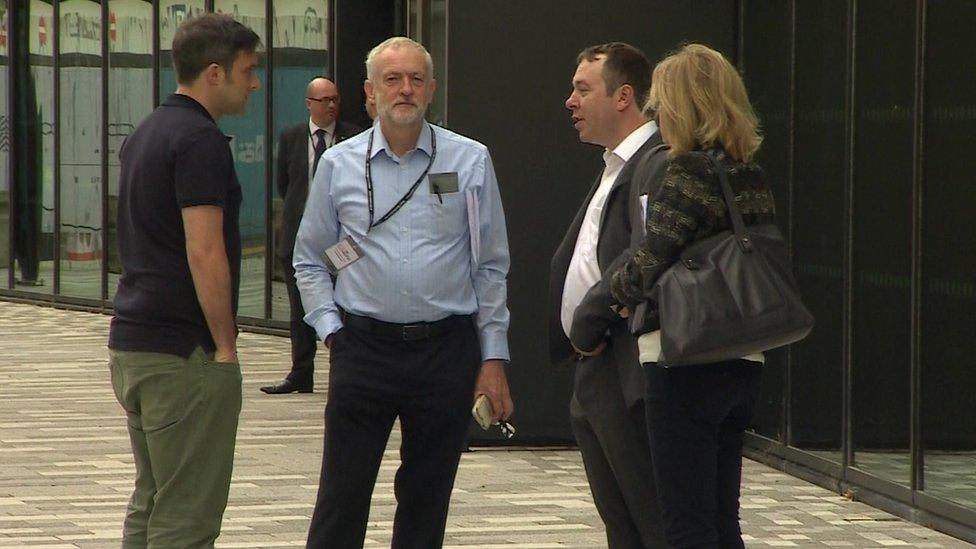
The Labour leader's team is confident of a second victory
The BBC's assistant political editor Norman Smith said he expected Mr Corbyn to win and to "win big" - with a potentially larger margin of victory than last year - when he beat three other candidates and secured 59.6% of the vote.
Turnout in this year's contest was 77.6%, with an estimated 496,000 party members, trade unionists and registered supporters having taken part.
Labour leadership: Jeremy Corbyn profile
Labour leadership contest: Owen Smith profile
The two-month campaign has aroused strong passions on both sides and led to legal disputes over the rules and who is entitled to vote.
Mr Corbyn, a veteran left-wing MP who went from rank outsider to Labour leader last year, has stressed his commitment to far-reaching economic and political change and insisted he wants to lead Labour back into power and is not content with opposition.
In a video posted on twitter, external on Friday night, Mr Corbyn said the party had "a duty to unite, cherish and build our movement" whatever the result of the leadership poll.
He described the campaign as "robust and at times difficult" but said it had been "overwhelmingly respectful in tone".
Mr Corbyn also said his campaign team had created new networks that would be a "pivotal part" of Labour's general election campaign, which he said would be the party's "biggest, best and most visible".

Analysis
Mr Corbyn has urged Labour MPs to "come together" and fight the Tories
By Laura Kuenssberg, BBC political editor
Jeremy Corbyn's expected victory will come down to the passion of swathes of supporters he has won through his refusal to play politics as usual - ignoring calls to smooth his edges to fit into the standard mould.
It is also down to the sentiment among many members that having won a convincing mandate last year, Mr Corbyn deserves a second chance.
Last summer, the majority of Labour MPs miscalculated their party's mood and were astonished that Mr Corbyn won the top job.
His different style prompted a huge influx of new members who wanted to listen to him, not them.
Today they must grapple with a second miscalculation - that the leadership contest they hoped would weaken their leader will likely strengthen him instead.

During the campaign Mr Corbyn has drawn huge crowds to his rallies and retains the support of prominent union leaders, including Unite boss Len McCluskey.
But Mr Smith claimed that his rival was unelectable and that Labour, which lost more than 80 seats at the 2015 election, risks being further "decimated" if Mr Corbyn is still in place by the time of the next election scheduled for 2020.
Andy Burnham say Labour needs to move into a different era after the leadership elections.
The former work and pensions spokesman, one of those who quit Mr Corbyn's top team after the vote to leave the EU, has said he will remain on the backbenches if he loses.
The contest came about after more than 170 MPs supported a motion of no confidence in their leader.
Prior to that, more than 20 MPs had resigned from the shadow cabinet and a further 30 from the frontbench team in protest at Mr Corbyn's leadership style and performance during the EU referendum campaign - in which his support for the EU was more lukewarm than that of the majority of his colleagues.
'Appetite for unity'
Among those who called at the time for Mr Corbyn to stand aside were his predecessors as Labour leader, Ed Miliband and Lord Kinnock, who has warned that he may not see another Labour government in his lifetime.
The prospect of a second Corbyn victory prompted talk earlier this summer of a possible split in the party.
Ken Livingstone has said the party will not split whatever the result
Lord Kinnock: "This is the biggest crisis that the Labour Party has faced"
But in recent weeks, there have been reports that some of Mr Corbyn's critics are willing to serve under him despite their differences in an effort to maintain unity and provide a more effective opposition to the new prime minister Theresa May.
Speaking on Wednesday, Mr Corbyn acknowledged the election would not repair all the fractures in the party but that "an awful lot" of MPs were keen to "play their part".
And shadow transport secretary Andy McDonald said there was a "real appetite" for MPs to rally round and serve on the opposition front bench.
While some of the criticism of Mr Corbyn had been "valid" and leadership had been a "huge learning curve", he suggested many MPs would give him a second chance.
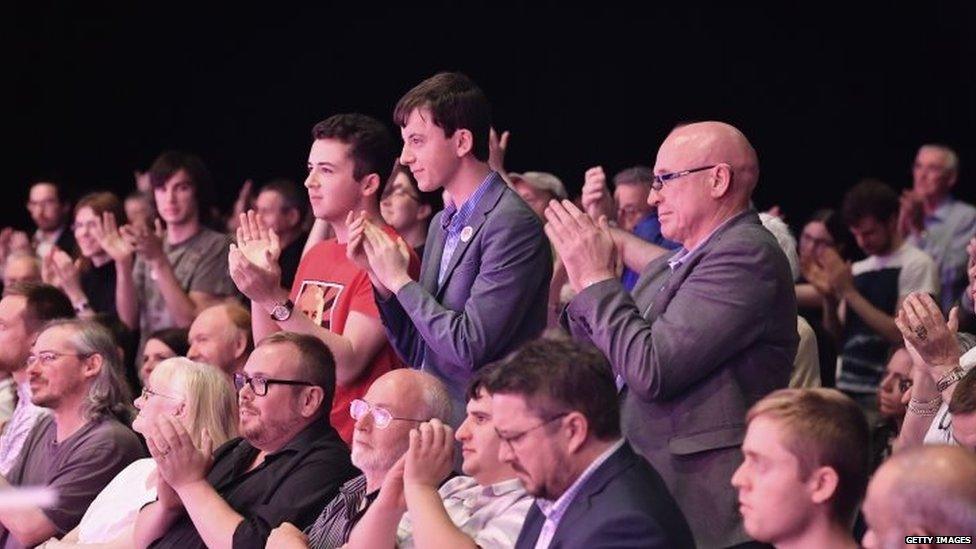
The campaign has aroused huge passions on both sides
"I think the majority of people want to say, 'We're done now... we move on and we present a united Labour Party," he said. "That is exactly what we have to do."
Labour MP Chuka Umunna said that although he would not be seeking a frontbench position, those who did had his "full support" and a split should be avoided at all costs.
The best way to bring the parliamentary party back together was to reinstate elections to the shadow cabinet, he suggested - a proposal discussed by party officials earlier this week but on which there is yet no agreement.
Shadow home secretary Andy Burnham told BBC Radio 4's Today programme that whatever the result, everybody within the Labour Party needs to "turn over a new leaf and start another chapter... the war of attrition has got to stop".
But amid signs of the continuing tensions in the party, pressure group Campaign Against Anti-Semitism has made a formal complaint to the party about a video posted on Mr Corbyn's campaign website, while 200 members of the party, including three councillors in Bristol, have been suspended.
- Published24 September 2016
- Published21 September 2016
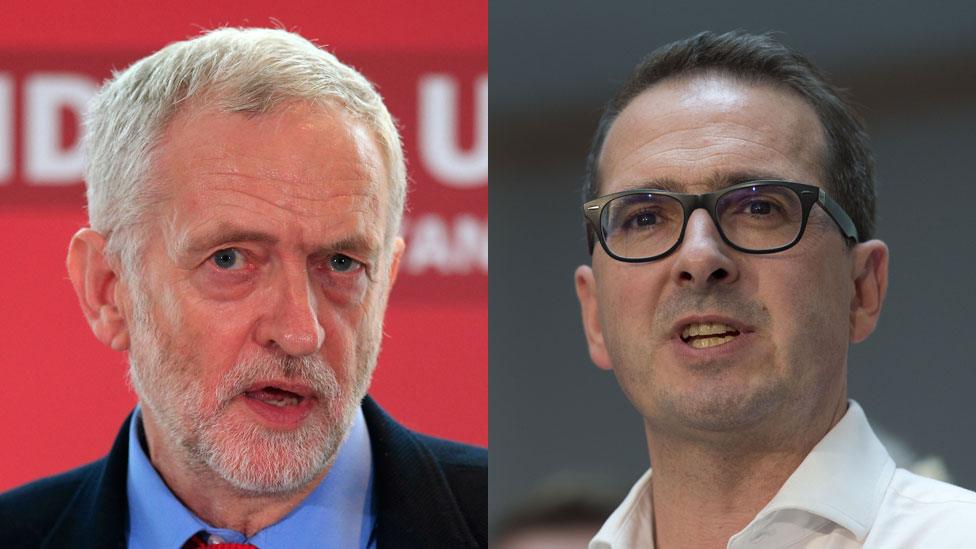
- Published23 September 2016
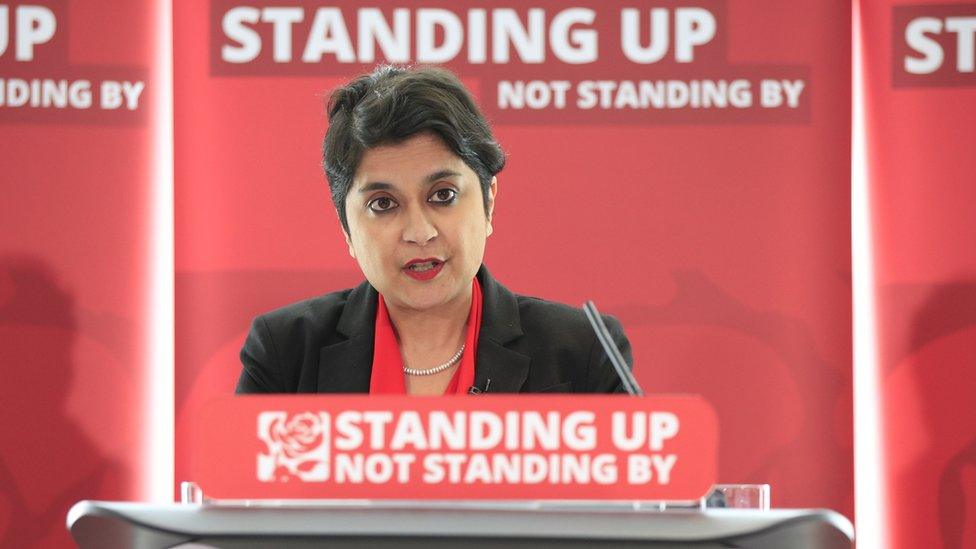
- Published23 September 2016
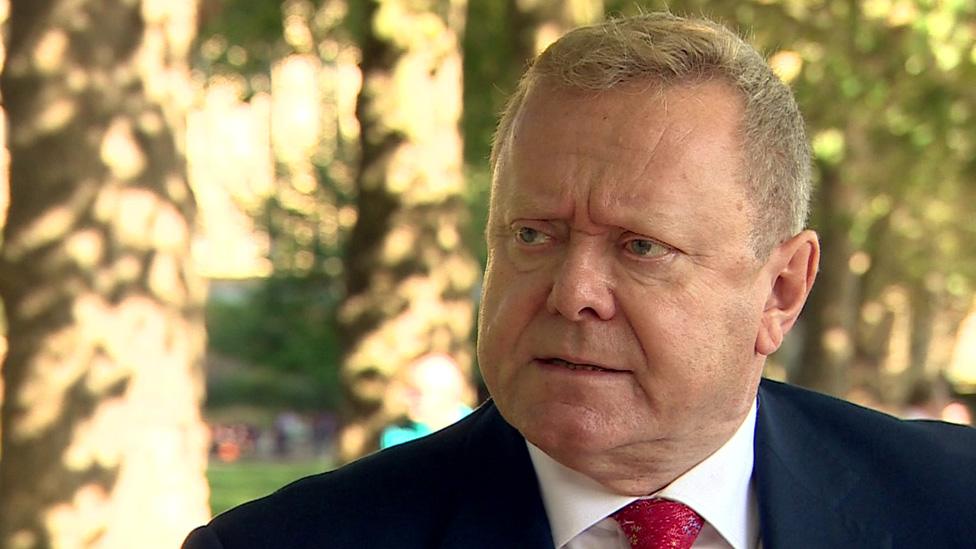
- Published21 September 2016
